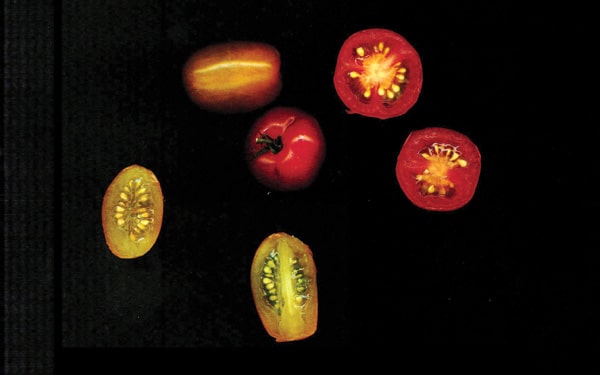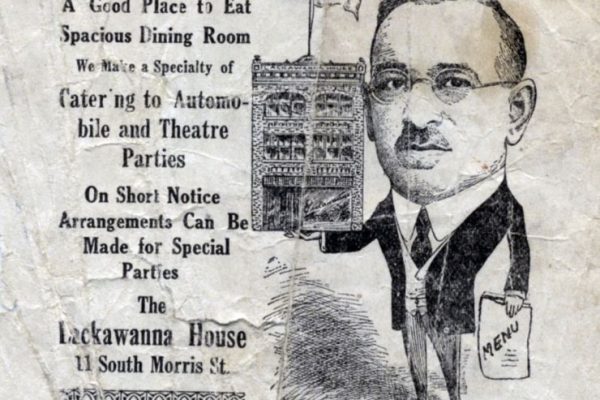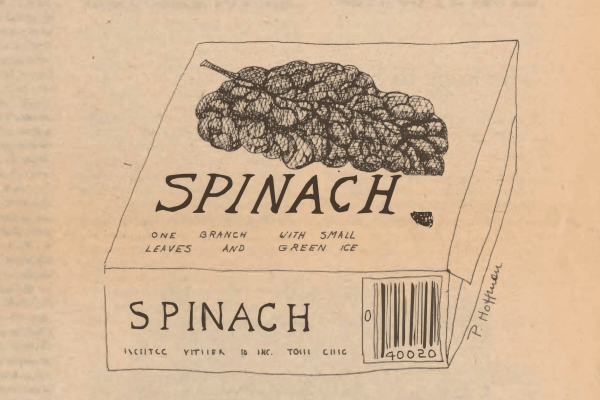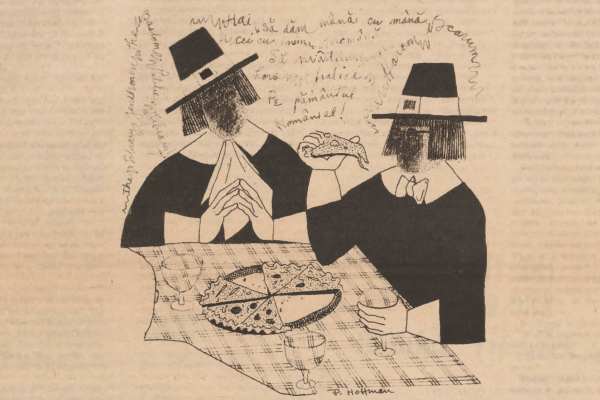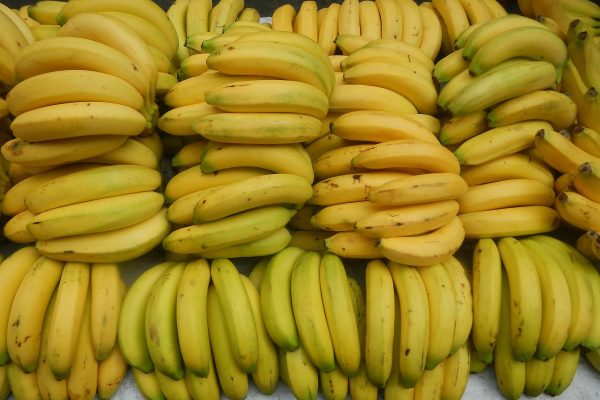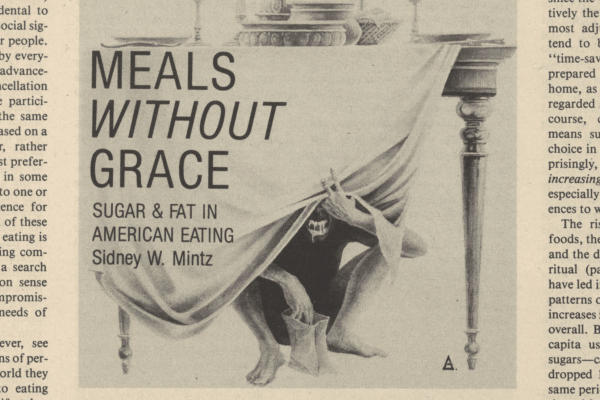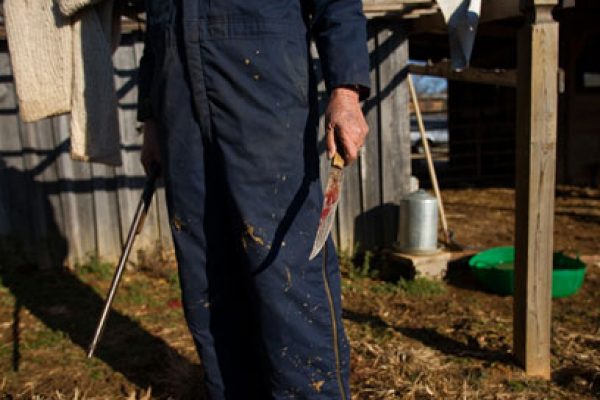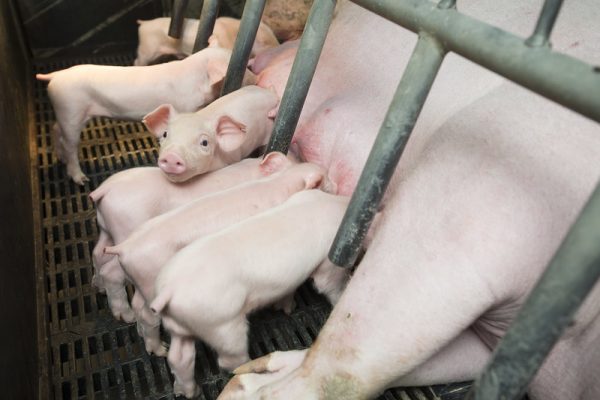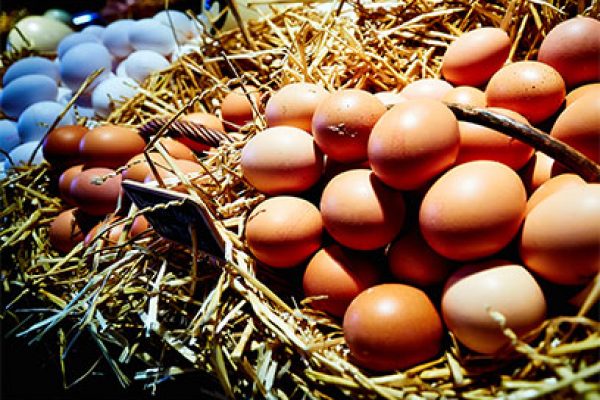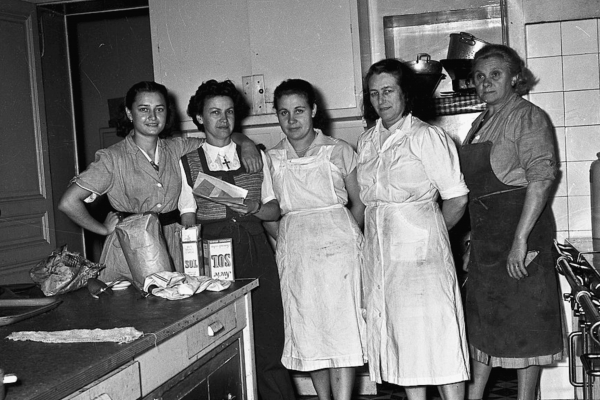We hope you’re not too hungry, as this week’s reading list features some of best essays on food and eating from the past forty-six years! From a food anthropologist’s early love affair with Chinese cuisine to the farmers’ protests in India, the pieces below consider food from political, cultural, and economic perspectives. Scientists, too, feature among today’s writers, answering questions such as: Why do our ideas about nutrition change so quickly? And are GMOs safe to eat? (Spoiler alert: yes. Though, as our noted forum from 2013 reminds us, there are serious policy questions to consider.)
Another cache of pieces considers the violence behind food production. Cate Lycurgus and Colin Dayan provide creative reflections on supply chains and a childhood spent among pet chickens which were later killed. Two other essays offer comparisons on the killing of pigs: ruminating on slaughtering the animals oneself and the brutality of factory farming. Pork also forms the backbone of a new piece from John R. Bowen, who explores how halal is becoming a target for anti-Islam politics. With European politicians opportunistically capitalizing on animal welfare arguments to further their political agendas, “ritual slaughter is no longer an issue between Christians and Jews, nor Muslims, nor among cultural groups,” he writes. “It is a tension between religious and secular outlooks.”
We are also excited to bring you three essays from our early archive that have not been published on the web until now! Contributing to our very first issue in June 1975, renowned cook Julia Child reviewed a new history of American gastronomy, singing the praises of a recipe for pimiento custard spread (!) and detailing her obsession with all things corn. . . or her “corn orgy” as she calls it. Nine years later we featured the work of two renowned researchers who showed that food itself is food for thought. Sociologist Pierre Bourdieu wrote about the importance of “taste”—both literally and symbolically, revealing food as a class signifier—and anthropologist Sidney Mintz considered the outsized role of sugar in modern life. As our editors wrote in 1984:
“Mintz finds that sugar is an essential component in the ‘food technologist’s’ efforts to provide us with more things to eat, more times to eat, more places to eat—in short, with more incentives to consume food. Why is the three meal day giving way to perpetual snacking? Why has the ritualized meal been replaced by fast food ‘to go?’ Why have modem society’s ‘vastly more productive technologies’ resulted in our feeling that we have ‘less time; rather than more?’ Some answers, Mintz shows, lie right on our (paper) plates.”
How Julia Child sold Americans on the difficult, alien art of French cooking.
Julia Child reviews a gastronomic history of American cooking, sings the praises of a recipe for pimiento custard spread, and details her obsession with all things corn.
I decided to buy a banana.
It seemed like a good idea.
At the café, a banana.
A good idea, it seemed, so I couldn’t resist.
The famine in Yemen is not simply “man-made.” Particular men are responsible, and they should be brought to justice.
Two men test their ethical and spiritual mettle by raising and slaughtering pigs.
In a world unraveled by COVID-19, the brutality of factory farming demands we rethink our relationship to animals.
